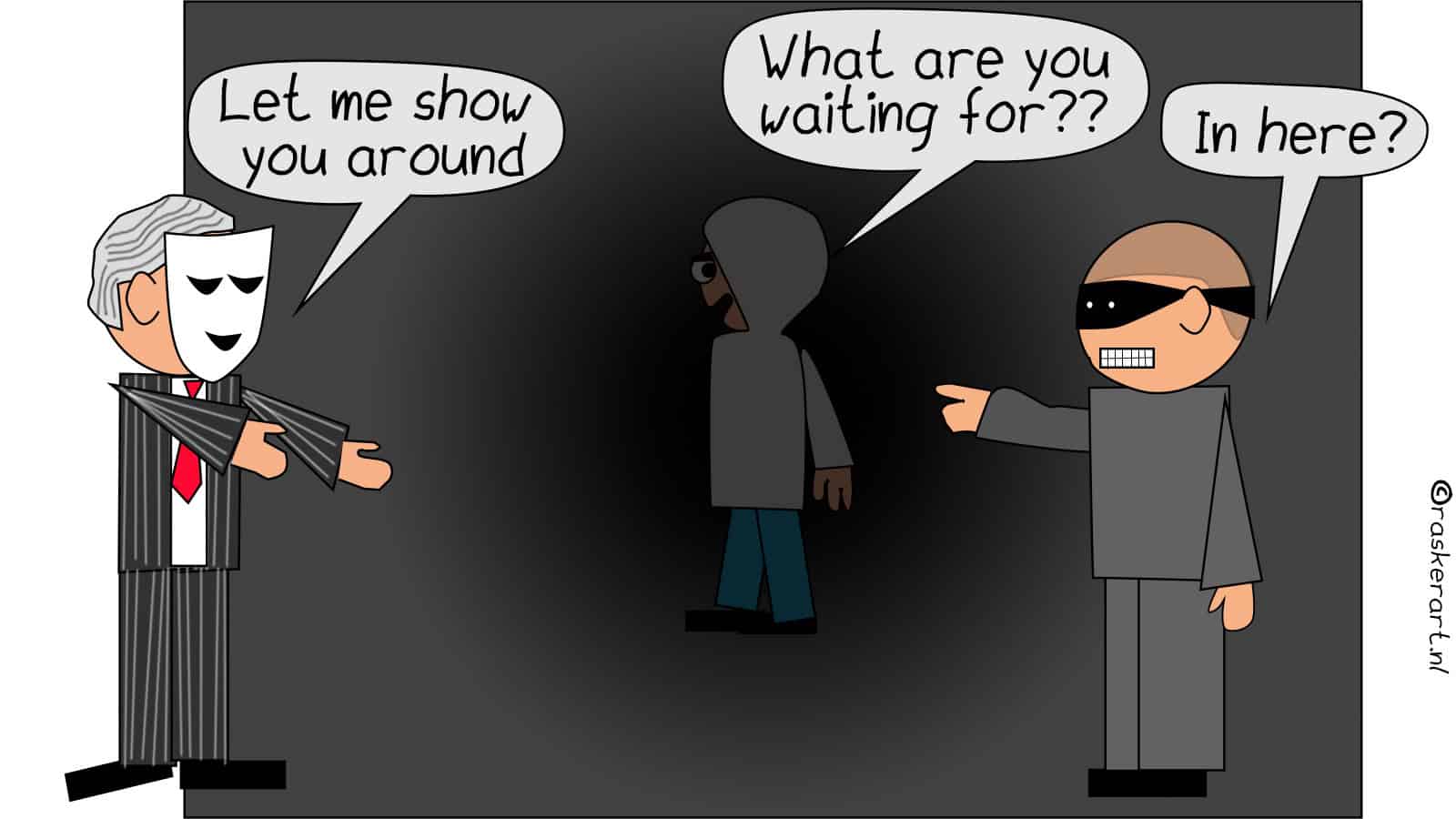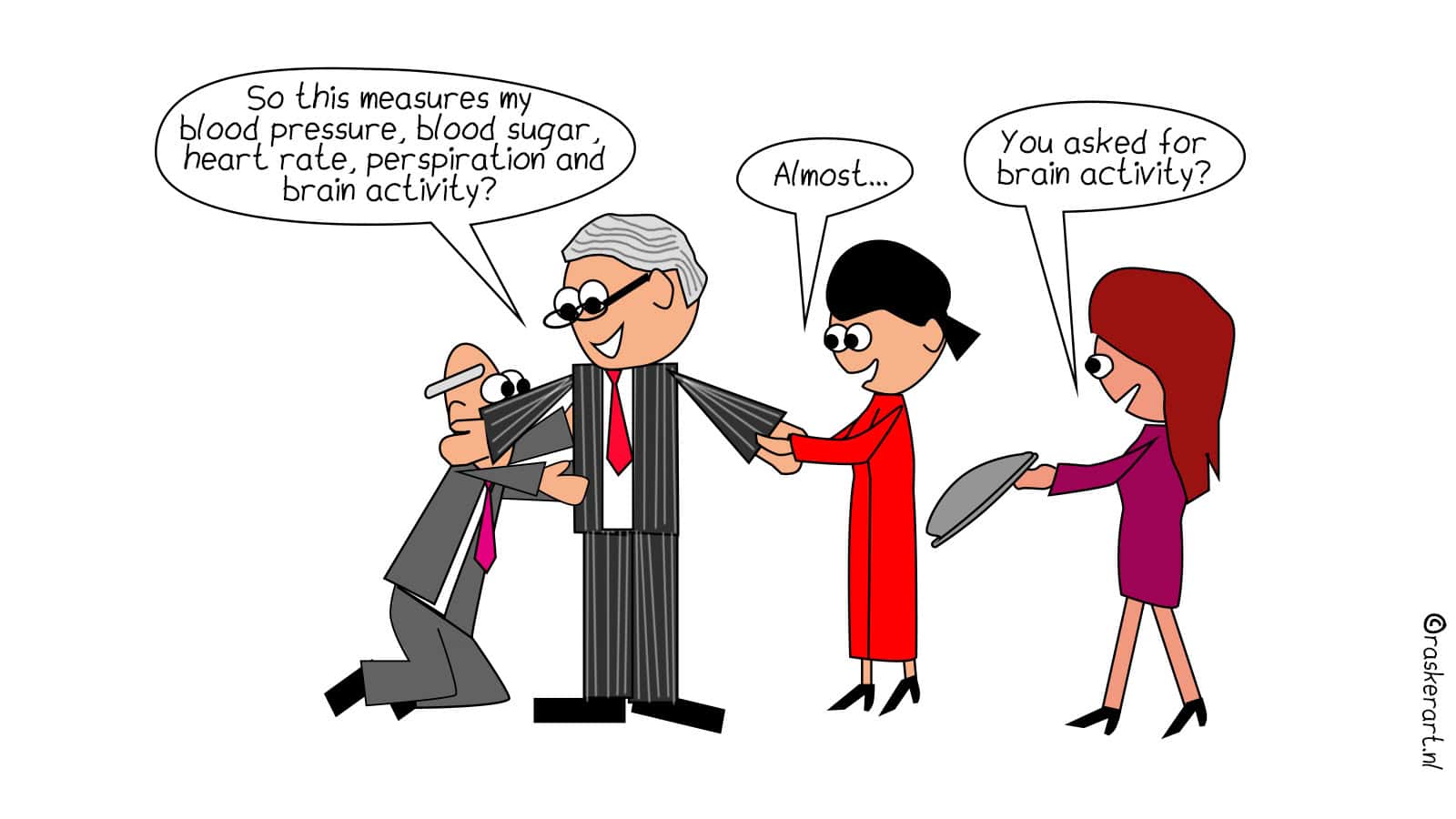
Each week, in our Sunday newsletter, we look back on the past seven days. Regarding content, we always do so at the initiative of our cartoonist, Albert Jan Rasker. He chooses a subject, draws a picture, and we take it from there.
Those who can control heat can control CO2 use. That simple but clear observation led Heatflex to a luminous solution. To provide a sustainable heat supply, HeatFlex wants to encourage the use of renewable energy sources by harnessing, studying and testing new technologies. But how do you go about that when you know temperatures vary so much that a one-size-fits-all is out of the question? Steel manufacturing requires heat up to 1,800°C, while paper production asks for 200°C. All together, it makes heat production responsible for 21% of the world’s CO2 emissions. Colleague Mauro Mereu went to Delft for it, where he spoke to chemical engineer John Nijenhuis. Read the whole story here, which was the topic of the week for Albert Jan.
Step up, pitch!
Fortunately, there are many more do-gooders. Those who follow Innovation Origins a bit know that we have a special eye for them. Take, for example, these twelve promising Brabant AI startups that are going to compete in the AI Pitch Competition. They were selected from dozens of entries and will compete on Nov. 7 for the grand prize of no less than 50,000 euros. Read how they plan to change the world with artificial intelligence.

The power of Europe
We had a great event last Thursday, in our own greenhouse at the High Tech Campus. Fred Bakker, author of “Unleashing the Power of European Innovation,” responded to questions from our editor-in-chief, Aafke Eppinga, with an optimistic view of Europe’s opportunities on the world stage. Naturally, the analysis that Mario Draghi hurled into the world last week was first discussed at length, but in addition there was plenty of room for an in-depth conversation about the real power of Europe. From the audience came the question of who are the new heroes of the union, the successors to people like Konrad Adenauer, Jean Monnet and Robert Schuman. We didn’t quite get there, until Bakker himself concluded that perhaps we should look for that new hero just outside the union: Volodimir Zelenski. He has indeed ensured that there is more unity than before, but yes, as we all know, hero status is usually earned only in retrospect, so who knows…
We are going to do this kind of event more often, so keep an eye on the calendars. For now, we can already announce that we will have another Drinks/Pitches/Demos on October 2, the Fundfest on October 8 (only for startups that received funding and investors that made it happen) and a workshop ‘Publishing with AI’ on October 9. By the way, also keep November 14 free: further news to follow.
And here’s what else caught our eye last week:
- When we say goodbye to rubber ducks and chip bags (Elcke Vels’ What If column)
- AI chatbot debunks conspiracy theories: 20% less belief after brief conversation
- How TNO transformed from broad innovation within 3D printing to specific breakthroughs in food and pharma
- The Plasmacure effect: Dutch startup offers revolution and speed in wound care (the debut of colleague Thales Dibo)
- China dissatisfied with Dutch export restrictions ASML (interested in this topic? Then also read yesterday’s CHIPS+ newsletter )
- When ordinary data are no longer enough: Demcon shows the power of synthetic data
- Top 100 most innovative SMEs in the Netherlands announced
- Slush’d Enschede: No funding without AI and SDGs? Four investors have their say
- ESIA calls for ‘Chips Envoy’ to lead Europe’s semiconductor strategy
- …and this is IO’s innovation calendar for September

Have a good week!








